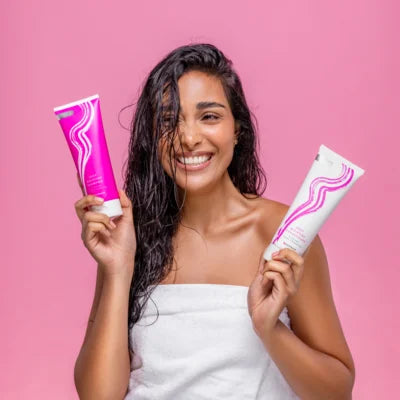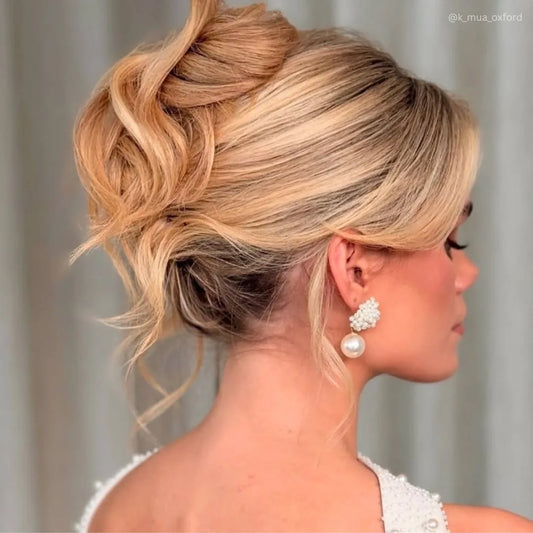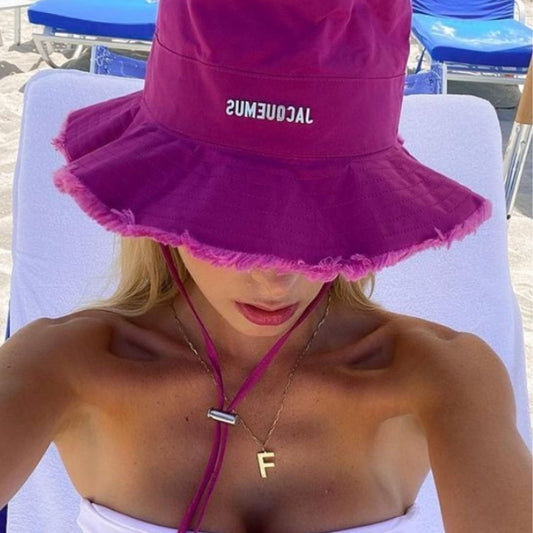Summer has come and you’ve been invited to countless pool parties. Well, besides having very cool friends, what does this mean for you and your hair? The effects of chlorinated water on your tresses – including your hair extensions – can be quite devastating. In today’s blog, we’ll explore all the side effects of taking a refreshing jump in the pool, the precautions to take in order to protect your mane, and how to salvage your strands from any potential damage they’ve already been through.
Understanding Chlorine's Effects:
Chlorine is usually present in swimming pools – whether they’re private or public – as an antibacterial to keep the water clean for everyone to enjoy. Its properties, however wonderful to kill harmful organisms, can be quite taxing on human hair – stripping away natural oils, breaking proteins, and eventually leading to dryness, brittleness, and finally: breakage. Our hair extensions are all made of 100% Remy human hair, but unlike your natural tresses they do not receive any nourishment from your scalp, meaning that you’ll need to take some extra precautions to protect your investment. But first, let’s see what chlorinated water can do to your hair more in detail:
Dryness
Chlorine has damaging effects on keratin, the protein in your hair, affecting your strands’ cuticle layer. This means that your hair will then struggle in retaining moisture, leaving you with dry locks that become quite unruly and difficult to tame.
Frizziness
Dry hair becomes more prone to frizziness and staticness. These factors both contribute to your hair looking frazzled, becoming hard to style, and leave you with pesky flyaways here and there. Not ideal.
Discolouration
Prolonged exposure to chlorine, especially when combined with other factors such as UV rays and/or salt water, can impact your hair and extensions’ shade. Especially in the case of light blonde hair, swimming in a pool for too long can lead to a specific type of discolouration known as “swimmer’s green hair” – this isn’t specific to chlorine (the culprit is actually copper!) but it’s a metal often found in swimming pools, so be careful!
Brittleness
Chlorine can weaken your hair’s structure bond (keratin) soon enough leading to increased hair breakage, split ends, and reduced elasticity – which will make your styling much harder and your strands more prone to snap. Find our more about your hair elasticity and how to test in our dedicated blog: Hair Elasticity 101: Why Is My Hair Stretchy?.
Matting
Dry, brittle and unruly hair and hair extensions become a very bad combo. As the hair’s cuticle becomes compromised, your strands’ structure appears rougher and will become more prone to tangling and matting.
How To Protect Your Hair From Chlorine
Wearing hair extensions and/or caring for your hair doesn’t mean that you have to miss out on yet another pool party, sitting in a corner without ever taking a dive. Quite the opposite, all you need to do is take some precautions!
First things first: if you are wearing clip in hair extensions, know that this type of extensions are not designed to be worn in a pool or in the sea. Long story short, you’ll need to take them off. If you are wearing permanent hair extensions, however, here’s what the journey to shelter them from chlorine looks like…
Before swimming, get your hair or extensions wet with fresh/filtered non-chlorinated water, and apply a protective leave-in conditioner or oil to create a barrier between your hair and the chlorine, reducing absorption.
Another solution would be using a swimming cap, specifically a silicone one so that the water cannot come through. Might not be a particularly aesthetically pleasing accessory, but hey… It works.
After swimming, make sure you rinse your hair and hair extensions thoroughly (with fresh water) to remove any chlorine residue or build-up. Pro tip: use clarifying shampoo! This type of shampoo is designed to clean deep in your strands, and will help you get rid of chlorine in a wash.
Once you’re done washing, follow up with a deep conditioning treatment to replenish the moisture lost and bring your tresses back to life with hydration and softness.
Conclusion:
While chlorine can damage both natural hair and Remy hair extensions, being aware of its effects and taking the necessary precautions can make a huge difference. Solutions such as pre-rinsing, wearing protective products, and dedicated post-swim hair care can help you make sure you can enjoy your time in the pool without compromising the health and beuaty of your tresses.













